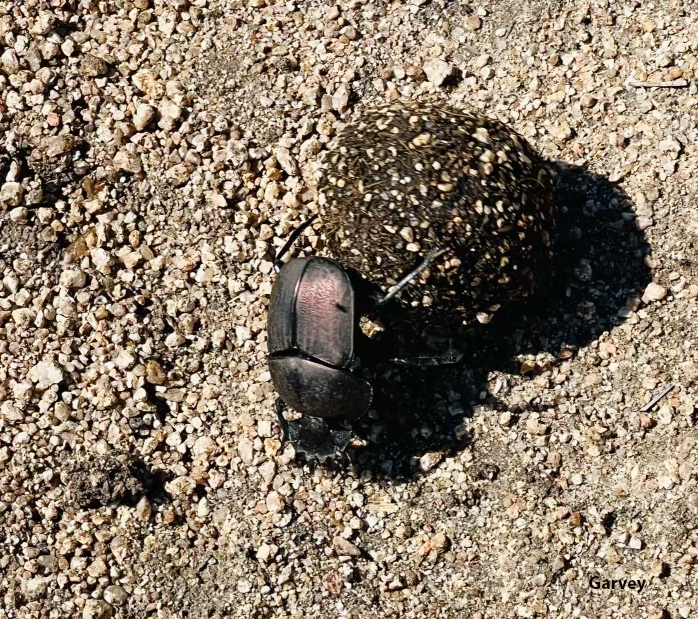
'Insects, Art, and the Sound of a Silent Crisis'
Lee Rafuse Haines of Norte Dame to Present Seminar on June 2

"Insects, Art, and the Sound of a Silent Crisis."
That's the theme of a seminar to be presented by medical entomologist Lee Rafuse Haines, associate research professor, University of Notre Dame, on Monday, June 2 to the UC Davis Department of Entomology and Nematology.
Her seminar begins at 4:10 p.m. in 122 Briggs Hall and also will be on Zoom. The Zoom link: https://ucdavis.zoom.us/j/95882849672
Haines's talk will "explore the urgent but often overlooked global crisis of insect decline, where we're losing 2-3% of insect species annually."
Beginning with the cautionary tale of ivermectin's devastating impact on local dung beetle populations, she will examine how seemingly isolated--and well meaning--human interventions can trigger cascading, devastating ecological consequences, according to her abstract. The discussion will expand to the broader pattern of insect extinctions worldwide and their profound implications for ecosystem stability, food security, soil health and human well-being.
"Moving beyond the concerning data, she'll confront a critical question: why hasn't this ecological emergency generated a wider public response? The final segment addresses this challenge by demonstrating how scientific knowledge can be transformed through artistic expression--specifically, the creation of an insect-inspired symphony to translate the urgency of insect extinctions into musical narrative. This interdisciplinary approach aims to evoke emotional connections that pure data cannot, potentially bridging the gap between scientific understanding and public consciousness. By combining biological data with musical storytelling, she hopes to inspire new pathways for scientists to amplify their voices beyond academic silos and to catalyze meaningful behavioural changes rooted in empathy."
Haines, who holds a doctorate in tropical medicine (University of Liverpool, UK), and a master's degree in biochemistry and microbiology (University of Victoria, Canada), focuses her research on diseases that are spread by arthropods, particularly the interrelationships between insects, their microbiota, and the pathogens they transmit. Under this umbrella, she has been involved in lab and field-based projects that range from basic to translational science, her website indicates.
"Her research includes investigating how gut bacteria impact the insect immune system and vectorial capacity, developing assays to measure the intensity of insect bites in humans, understanding the cues underlying tsetse breeding and maternal behaviors, surveying the prevalence of aquatic and veterinary parasites," her website relates. "Her research projects have extended into countries like Canada, the UK, Kenya, Uganda, and Saudi Arabia, where she maintains ongoing and valuable partnerships. She has also developed new collaborations with international institutions in Spain, Portugal, and South Africa. She closely collaborates with the Acosta-Serrano group on a project to repurpose herbicidal chemistries as new tools to control insect-borne diseases."
Her 20 years of experience with parasite culture and insect husbandry, includes managing the largest operational tsetse breeding colony in the UK. As a result, she gained an in-depth knowledge of their biology, fitness traits and responses to bacterial and parasite infections. She has also reared colonies of several mosquito species (Anopheles spp., Aedes aegypti), as well as triatomines (Rhodnius prolixus) and sand flies (Phlebotomus papatasi).
Coordinator of the seminars is nematologist Amanda Hodson, assistant professor. She may be reached at akhodson@ucdavis.edu for any technical issues with Zoom. This is the last seminar of the spring quarter. Recordings are posted here.
